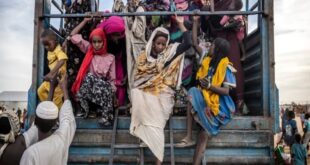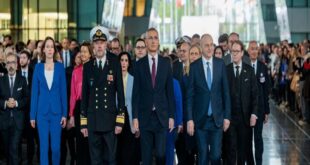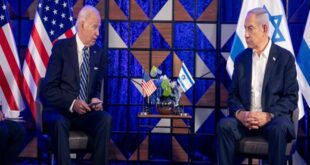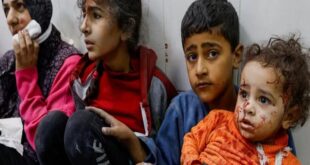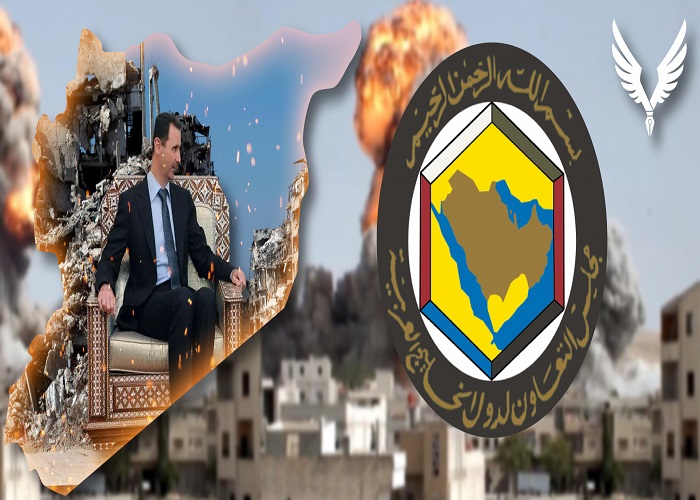
Syria’s regional policy ought to be grounded in respecting the national and security interests of other Arab states, particularly the Gulf states. It is in Syria’s interest if its foreign policy is based on pursuing diplomacy, dialogue and common interests to strengthen bilateral and multilateral relationships with the countries of the region.
Gulf states can play a critical role in helping to resolve Syria’s crisis. Several recent developments show that the Syrian people could also begin to experience more stability, security and economic development.
For example, the Arab League recently readmitted Syria, which ended a more than decade-long suspension. According to the Saudi Foreign Ministry, the Arab League foreign ministers “consulted and exchanged views on the efforts made to reach a political solution to the Syrian crisis that ends its repercussions and preserves Syria’s unity, security, stability, and Arab identity; returns it to its Arab surroundings, to achieve the good of its brotherly people.”
Other important developments include the phone call between UAE President Sheikh Mohammed bin Zayed Al-Nahyan and Syrian President Bashar Assad on bilateral ties between the two nations. In addition, Saudi Arabia has made an important decision to resume the work of its diplomatic mission in Syria.
Syria’s readmission to the Arab League, in addition to the latest diplomatic rapprochements between Damascus and the Gulf states, is most likely going to be just the start of a long process that will hopefully help to resolve the crisis in the country. This goal was also acknowledged by Arab League Secretary-General Ahmed Aboul Gheit.
The Arab League, a 22-member organization founded in 1945, can play a critical role in discussing and resolving Syria’s underlying problems, as the organization is one of the most influential and powerful intergovernmental bodies in the world.
It was established with the purpose of strengthening relations between Arab states, safeguarding their sovereignty and addressing general concerns about the affairs and interests of member nations.
The Arab League’s primary role is to coordinate the political, cultural, economic and social programs of its members, as well as to mediate disputes between them.
In addition, the Arab League is a key international player that has the capability to pave the way for tremendous social, economic and political changes. It can also push for specific measures and policies to be considered by other international organizations. For instance, the Arab League has successfully urged the UN to adopt resolutions that have had significant positive impacts on regional peace and security.
However, it is critical to note that Syria’s crisis is multifaceted and complex. The economy is crippled after years of conflict, which has inflicted an unimaginable degree of devastation. Syria’s gross domestic product has more than halved and its currency has lost a significant portion of its value, leading the World Bank to rank it as a low-income country.
Damascus needs to make it a priority to improve its economy and, more importantly, the living standards of its people.
Prior to 2011, when Syria’s economic and political relationships with the Gulf states were amicable, its economy was improving thanks to these bilateral ties and tourism.
But after the civil war began, sanctions on the regime changed the situation and left Syria with “a limited national budget to subsidize commodities such as bread and fuel … Displaced families and other vulnerable households are caught in the middle of a financial crisis caused by a rapidly depreciating currency and lack of available jobs. This means it is incredibly hard for Syrian families to provide for themselves, particularly amid growing food insecurity. Reports … describe families waiting for hours in bread lines, causing children to miss school or caregivers to miss work in order to find loaves of bread,” according to the Center for Strategic and International Studies.
The second issue is related to enhancing the security of the country in a way that ensures safety and stability for the Syrian people, protecting them from the threats posed by militia and terror groups.
The Gulf states are skilled in adopting modern counterterrorism strategies and in establishing institutions that promote an alternative and moderate ideology, while educating and raising awareness about extremist ideologies online. Examples include Saudi Arabia’s setting up of the Ideological Warfare Center, the Digital Extremism Observatory, the King Abdulaziz Center for National Dialogue and the Global Center for Combating Extremist Ideology. The Kingdom aims to challenge the messages of extremist groups through these initiatives.
If Syria’s economic crisis is adequately addressed, security will likely be enhanced in the country as well.
Dr. Majid Rafizadeh
If Syria’s economic crisis is adequately addressed, security will likely be enhanced in the country as well, due to the fact that poverty and conflict-stricken states can often be ripe places for terror and militia groups to grow, gain power and inflict damage on the country and broader region.
Finally, the largest refugee crisis in the world belongs to Syria. This has impacted neighboring countries economically and politically. By addressing the nation’s security and economic issues, the refugee crisis will gradually see signs of improvement as well.
Syria’s crisis is deep and complex, but the region can play a key role in resolving it. The latest diplomatic initiatives between Damascus and the Gulf states have the potential to bring more stability, safety, security and economic development to the Syrian people. This requires that the Syrian government seize the opportunity by respecting the national and security interests of the Gulf states, while grounding its foreign policy in diplomacy, dialogue and shared interests.
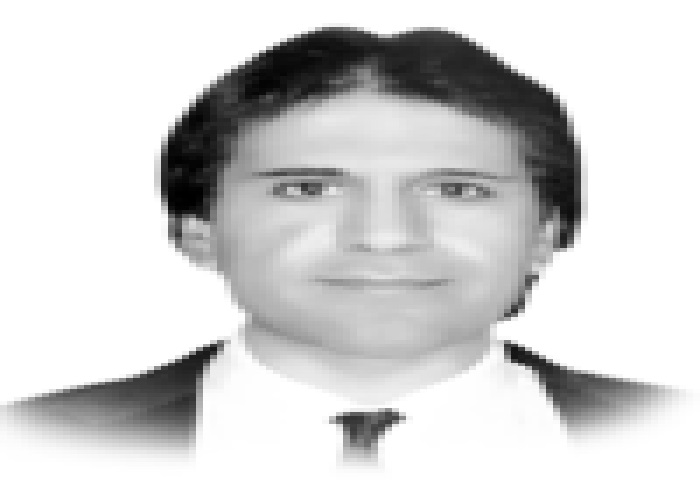
By Dr. Majid Rafizadeh is a Harvard-educated Iranian-American political scientist. Twitter: @Dr_Rafizadeh




 World Opinions Débats De Société, Questions, Opinions et Tribunes.. La Voix Des Sans-Voix | Alternative Média
World Opinions Débats De Société, Questions, Opinions et Tribunes.. La Voix Des Sans-Voix | Alternative Média

